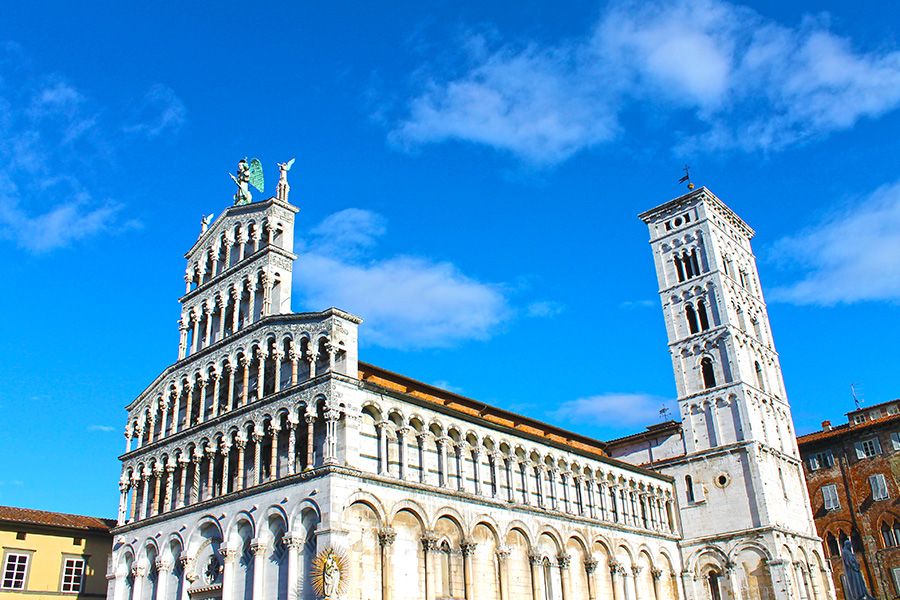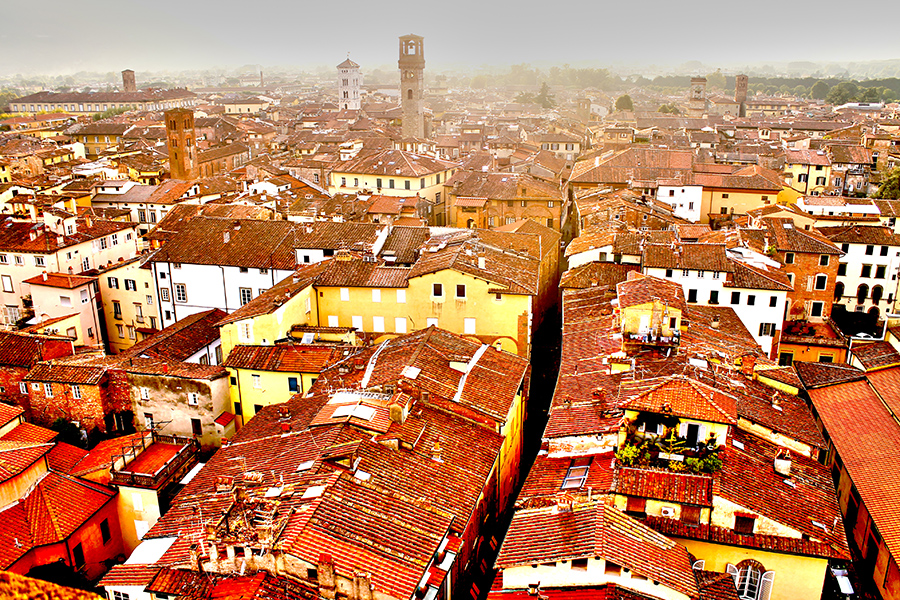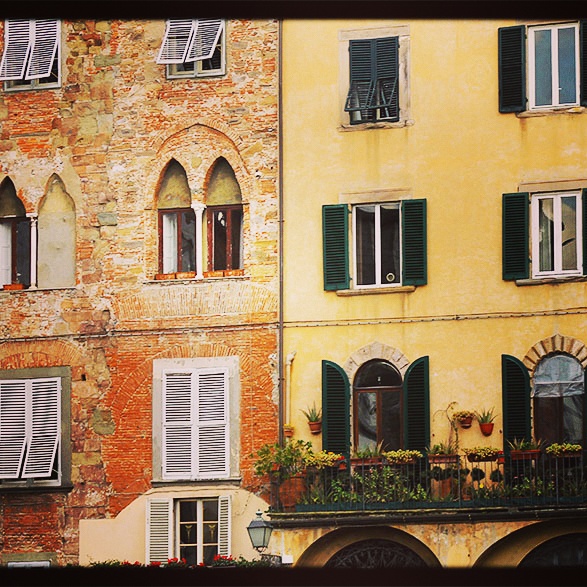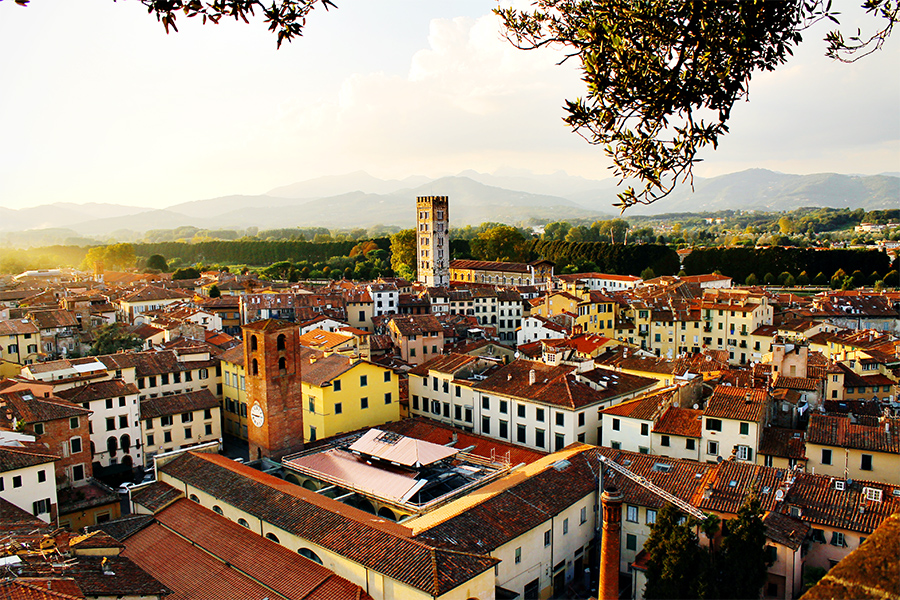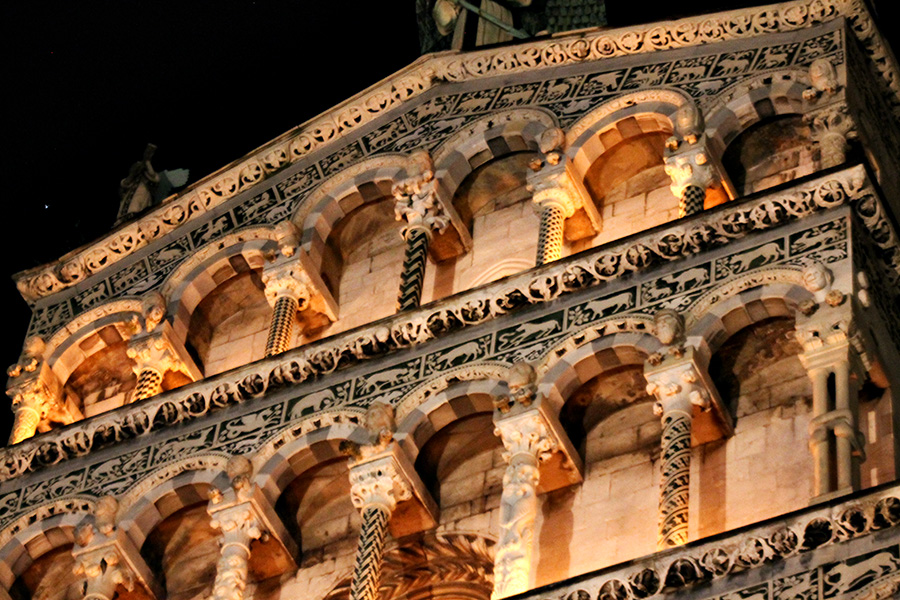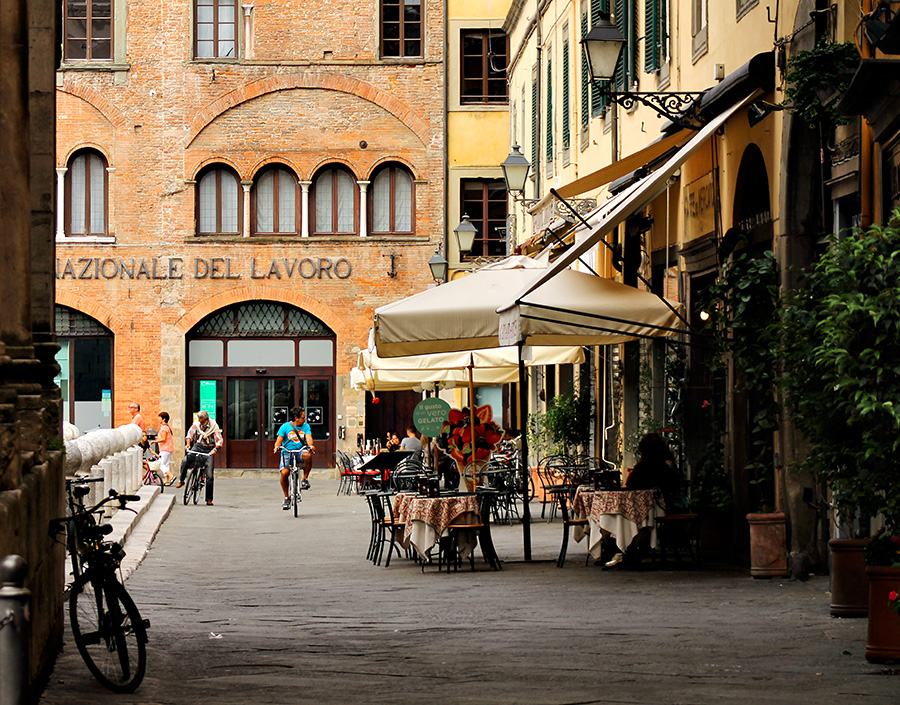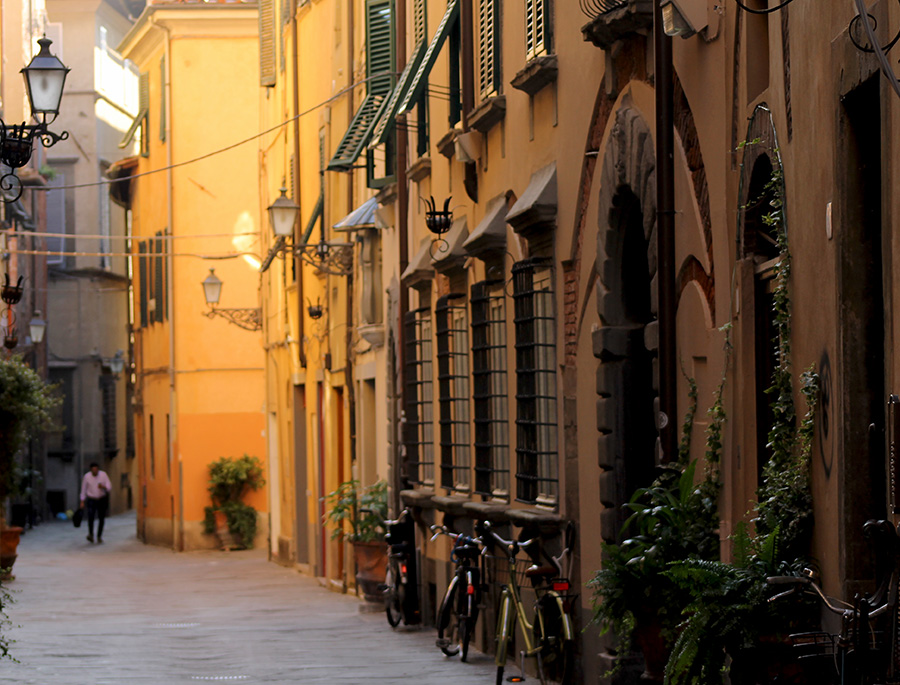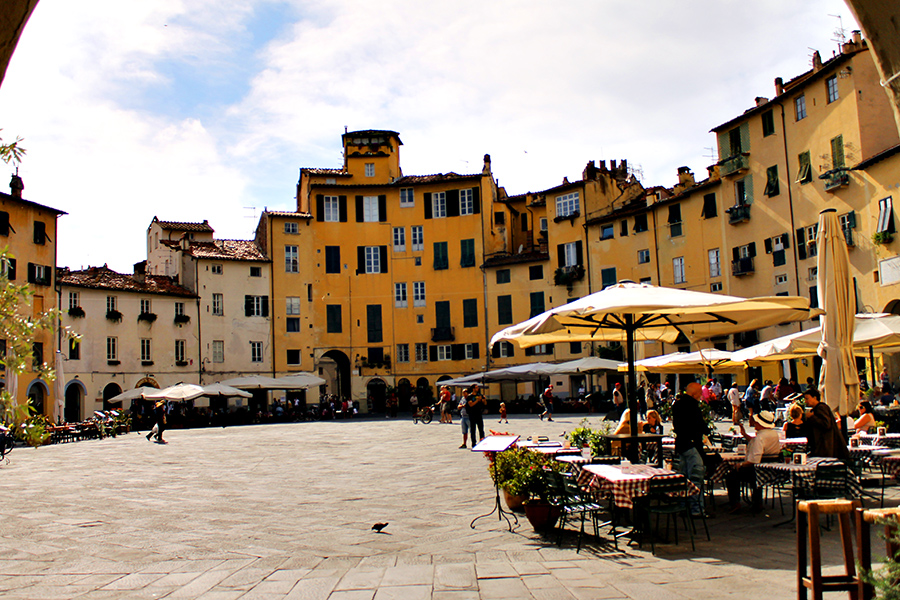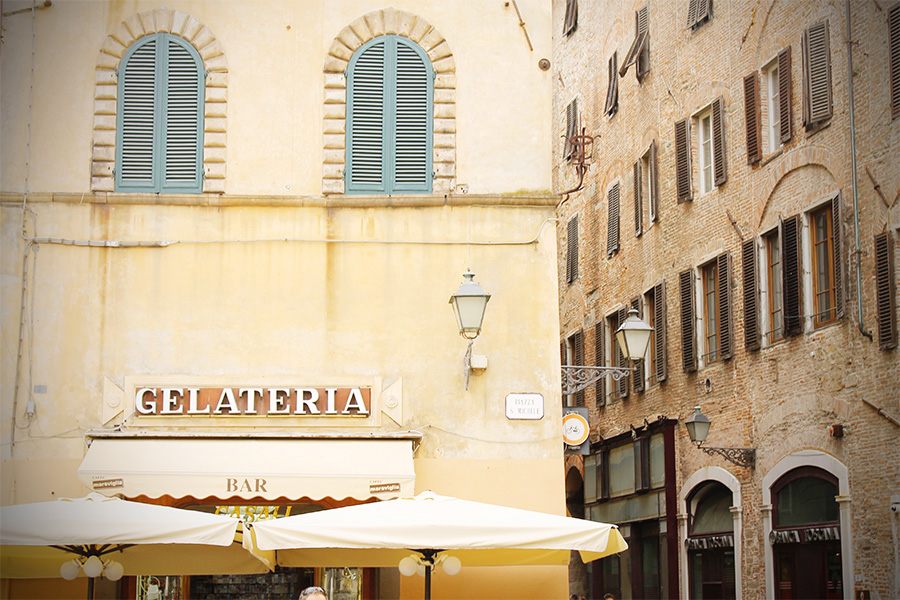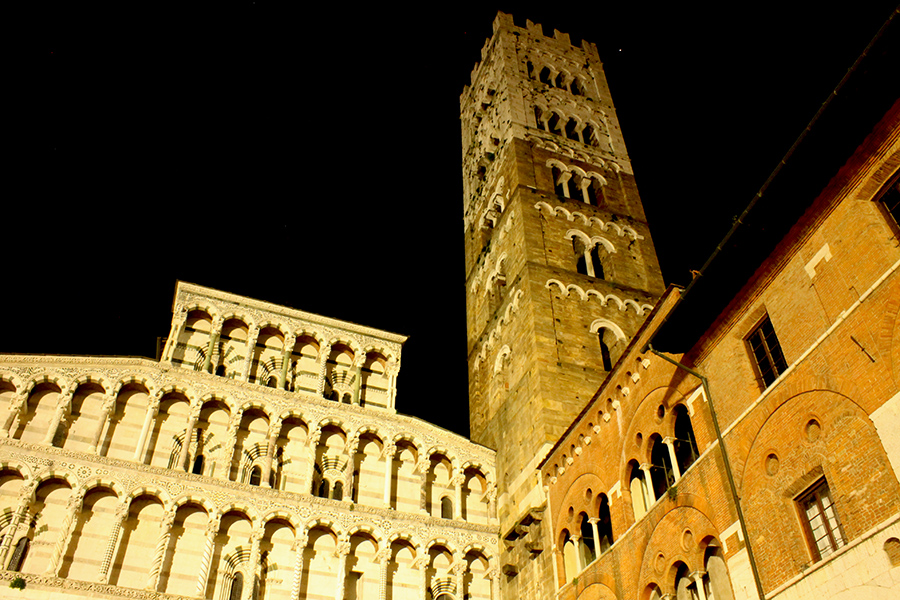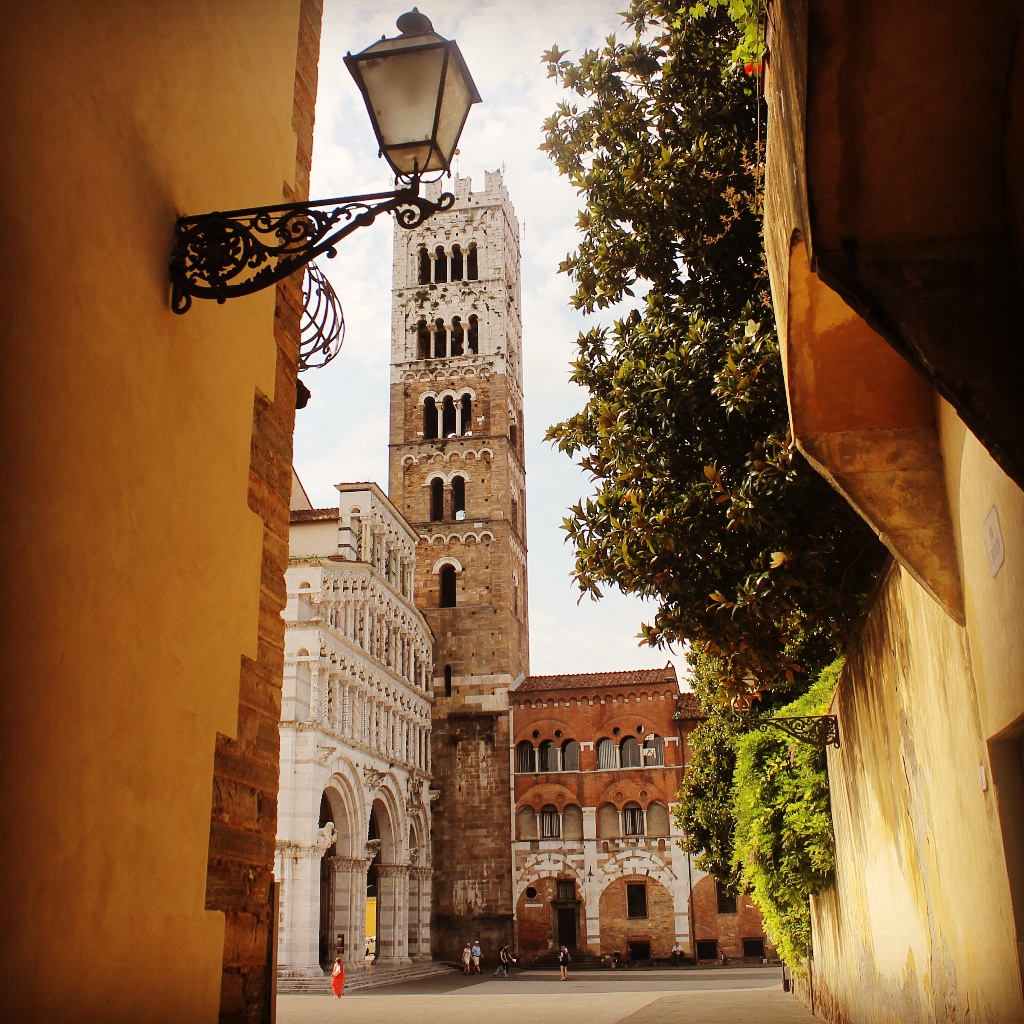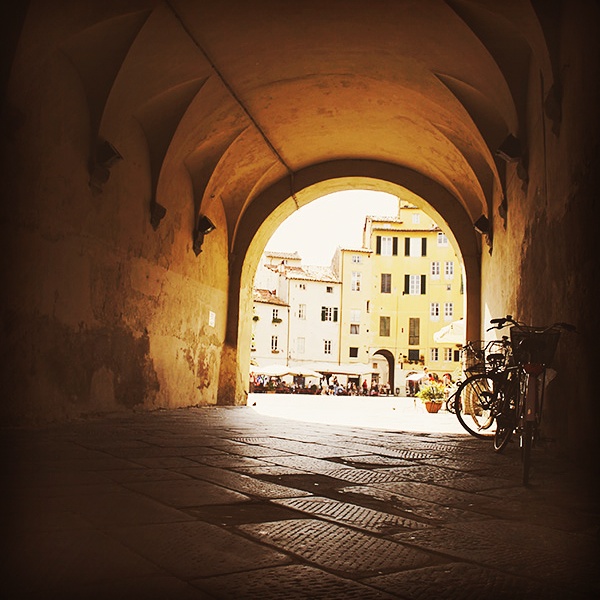Euroacademia Conferences
 Europe Inside-Out: Europe and Europeanness Exposed to Plural Observers (9th Edition) April 24 - 25, 2020
Europe Inside-Out: Europe and Europeanness Exposed to Plural Observers (9th Edition) April 24 - 25, 2020 Identities and Identifications: Politicized Uses of Collective Identities (9th Edition) June 12 - 13, 2020
Identities and Identifications: Politicized Uses of Collective Identities (9th Edition) June 12 - 13, 2020 8th Forum of Critical Studies: Asking Big Questions Again January 24 - 25, 2020
8th Forum of Critical Studies: Asking Big Questions Again January 24 - 25, 2020 Re-Inventing Eastern Europe (7th Edition) December 13 - 14, 2019
Re-Inventing Eastern Europe (7th Edition) December 13 - 14, 2019 The European Union and the Politicization of Europe (8th Edition) October 25 - 26, 2019
The European Union and the Politicization of Europe (8th Edition) October 25 - 26, 2019 Identities and Identifications: Politicized Uses of Collective Identities (8th Edition) June 28 - 29, 2019
Identities and Identifications: Politicized Uses of Collective Identities (8th Edition) June 28 - 29, 2019 The European Union and the Politicization of Europe (7th Edition) January 25 - 26, 2019
The European Union and the Politicization of Europe (7th Edition) January 25 - 26, 2019 7th Forum of Critical Studies: Asking Big Questions Again November 23 - 24, 2018
7th Forum of Critical Studies: Asking Big Questions Again November 23 - 24, 2018 Europe Inside-Out: Europe and Europeanness Exposed to Plural Observers (8th Edition) September 28 - 30, 2018
Europe Inside-Out: Europe and Europeanness Exposed to Plural Observers (8th Edition) September 28 - 30, 2018 Identities and Identifications: Politicized Uses of Collective Identities (7th Edition) June 14 - 15, 2018
Identities and Identifications: Politicized Uses of Collective Identities (7th Edition) June 14 - 15, 2018
Identities and Identifications: Politicized Uses of Collective Identities (9th Edition)
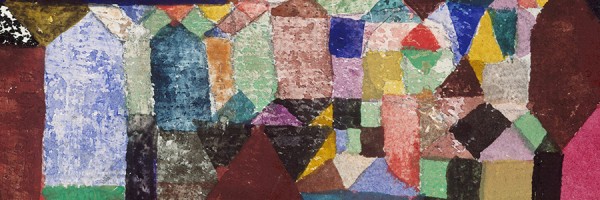
- Conference Description
- Conference Panels
- Propose a Panel
- New Panel: Identity and the Self
- New Panel: European Identity
- New Panel: Identity and the City
- New Panel: Art and Identity
- New Panel: Performing Identity
- New Panel: (En)Gendering Identity
- New Panel: Identity in the Visual
- New Panel: Sequential Art and Identity
- Participant’s Profile
- Registration and Fee
- Social Activities and Publication
- Important Dates
- Venue and Directions
- Apply Now
9th Euroacademia International Conference
Identities and Identifications
Politicized Uses of Collective Identities
CALL FOR PAPERS AND PANELS
THE CONFERENCE WILL BE POSTPONED AND NEW DATES ANNOUNCED WHEN POSSIBLE
12 – 13 June 2020
Lucca, Tuscany, Italy
Deadline for Paper Proposals: 27th of April 2020
Conference Description
Identity is one of the crown jewelries in the kingdom of ‘contested concepts’. Few concepts are so integral to social assumptions, beliefs and claims of belonging while simultaneously escaping a clear definition or even a minimal consensus. The idea of identity is conceived to provide some unity and recognition while it also exists by separation and differentiation. From personal to group and collective identities, multiple layers of identifications juxtapose, conflict or exclude. Few concepts were used as much as identity for contradictory purposes. From the fragile individual identities as self-solidifying frameworks, to layered in-group identifications in families, orders, organizations, religions, ethnic groups, regions, nation-states, supra-national entities or any other social entities, the idea of identity always shows up in the core of debates and makes everything either too dangerously simple or too complicated. Constructivist and de-constructivist strategies have led to the same result: the eternal return of the topic. Some say we should drop the concept, some say we should keep it and refine it, some say we should look at it in a dynamic fashion while some say it’s the reason behind the resistance to change. In the meantime, identities are programmatically asserted and promoted to generate cohesion and demand recognition while the process of identification excludes and creates boundaries and alterity making practices.
If identities are socially constructed and not genuine formations, they still hold some responsibility for inclusion/exclusion – self/other nexuses. Looking at identities in a research oriented manner provides explanatory tools for a wide variety of events and social dynamics. Identities reflect the complex nature of human societies and generate reasonable comprehension for processes that cannot be explained by tracing pure rational driven pursuit of interests. The feelings of attachment, belonging, recognition, the processes of values’ formation and norms integration, the logics of appropriateness generated in social organizations, are all factors relying on a certain type of identity or identification. Multiple identifications overlap, interact, include or exclude, conflict or enhance cooperation. Identities create boundaries and borders; define the in-group and the out-group, the similar and the excluded, the friend and the threatening, the insider and the ‘other’. Even more, identities generate legitimating circumstances for social and political action; assert the power of naming and rules of belonging while setting the stage for the perception of the other. The other can be internal, as difference and incomplete coherence with the in-group, or external as acknowledged difference or even in cases of radical alterity as perceived threat. The formation of identities can lead to multicultural integration of diversity, tolerance, recognition and pluralism while simultaneously exclude and build walls.
Beyond their dynamic fuzzy nature that escapes exhaustive explanations, identities are effective instruments for the politicization of social life. The construction of social structures and of specific social practices together with their imaginary significations, requires all the time an essentialist or non-essentialist legitimating act of belonging; a social glue that extracts its cohesive function from the identification of the in-group. Identities are political. Multicultural values populate extensively the twenty-first century, yet the distance between the ideal and the real multiculturalism persists while the virtues of inclusion coexist with the adversity of exclusion. Dealing with the identities means to integrate contestation into contestation until potentially a ‘n’ degree of contestation. Due to the confusion between identities and identifications, some scholars demanded that the concept of identity shall be abandoned. Identitarian issues turned out to be efficient tools for politicization of a ‘constraining dissensus’ while universalizing terms included in the making of the identities usually tend or intend to obscure the localized origins of any identitarian project. Identities are most often advanced as intentional concepts: they don’t say anything about their sphere but rather defining the sphere makes explicit the aim of their usage. It is not ‘identity of’ but ‘identity to’.
The 9th Euroacademia International Conference ‘Identities and Identifications: Politicized Uses of Collective Identities’ aims to scrutinize the state of the art in collective identities research, to bring once more into debate the processes of identity making, identity building in both constructivist or de-constructivist dimensions. The conference will include a wide variety of contributions on identity making practices while fostering a critical assessment of intended or unintended consequences that lead to the politicization of identities. It is the aim of the Euroacademia conference to open the floor to dynamic multi-dimensional and inter-disciplinary understandings of identities in their historic formation or in the way they shape the present and future of organizations or communities. The conference however seeks also to integrate and address the misunderstandings or misconceptions implicit to identity formation practices. A focal place will be given to methodological refinement and innovation in the research of identities in a broad spectrum of disciplines.
Euroacademia aims to bring together a wide network of intellectuals, academics, researchers, practitioners and activists that are willing to share and open to debate their research on identity related topics. Disciplinary, trans and inter-disciplinary approaches, methodological assessments, innovations and recommendations, single case studies or cross-sectional analyses, reflective essays, experience sharing or works addressing new puzzles are all welcomed.
Conference Panels
The Conference is organized around but not limited to the following tentative panels or topics:
- Welcome to the Land of Disputes: Theoretic Contributions to Understanding Identity
- Modernity and Identity
- Identities as Endogenous Factors in the Study of Organizations
- Critical Approaches to Understanding Identity
- Universal and Local in Identity Making
- Processes of Identity Building
- Practices of Identification
- Identity and Inclusion
- Identity and Exclusion
- The Politicization of the European Identity
- European Union and the Claims of an Emerging Supranational Identity
- America as a Soft Power: Attraction Through Identitarian Constructs
- Normative Powers and the Export of Identities
- Identity and the Power of Naming the Other
- In-Group – Out-Group Dynamics in Identity Formation
- Identities as Endogenous Factors in Explaining Political Behaviors
- Religion and Identities
- Imagined Communities: Migration and Preserving Identity as A Foreigner
- Art as an Identity Making Process
- Folklore and the National Identity Narratives
- History Reading and Identity Making
- Ideal and Real Multiculturalism: How Inclusive Our Societies Are?
- East/West – North/South: Imaginary Geographies of Identities
- Core/Periphery Claims in Shaping Identities
- Regions and Identities
- Nested Identities
- Identitarian Threats
- Symbols of Identities: Flags, Coins, Stamps and Anthems
- Cosmopolitanism and Supra-National Identities
- Film and the Visual Narration of identities
- Music, Dance and the Identitarian Signifiers
- Literature and Identities
- Groups, Gangs, Movements and Identities
- Protest and Identities
- Ethnicity and Identity
- Regional Integration Projects and Identity Appropriations
- Globalization and Identities
- Uses and Miss-uses of Identities for Political Purposes
- Organizations and Identities
- Brands, Branding and Identity
- Markets, Products and Identities
- Consumerism and its Impact on Identity Building
- Corporate Identity
- European Symbols and Representations of a Common Identity
- Identity and Conflict
- Crises of Identity
- Social Constructivism and Identity
- Feminism and Gendered Identities
- Queer Studies of Identities
- Post-Colonialism and the Refurbished Other(s)
However, if you are willing to propose and/or chair a particular panel we welcome you to advance your proposal in the Propose a Panel section.
Propose a Panel
Deadline: 10th of April 2020
Each Panel may contain a maximum of 5 speakers and a Chair that will act also as discussant in the proceedings.
Panel Proposal
Powered by Fast Secure Contact Form
Identity and the Self: Personal Identity, Autonomy and Belonging
Panel Description
Personal identity is the focal point of any reflective process. The existence of subjectivity implies the demand for making sense of the self that projects meaning to the world. The subjectivity is a hybrid construct – a byproduct of the self-instantiation as autonomy and agency and a result of interactive social belonging that further structures or de-structures the self. Individual autonomy makes possible a positioning of the self through unlimited questioning of imaginary social significations (C. Castoriadis). The subject can escape the status of pure social function as reproducer and proliferator of pre-existent social meanings and orders and autonomously assert social creation and change though reflective processes that configure the self in a relative independence. Personal identity is shaped in the complex process of multiple positioning of the self as autonomous creator of social meaning and heteronomous inhabitant of social environments with pre-asserted social norms and significations. ‘Who am I?’ remains the simple but most complex question and even provisional answers are part of the core self-making project.
The self as a unitary monadic construct was unmasked by multiple contemporary theories as a chimera propagated through the intellectual agenda of the Enlightenment. In overcoming contradictions in modern theories of the self, we are left with multiple selves, dynamic, fluid, hybrid, and multi-layered, conflictual and determined by hidden mechanisms that limit our power to self-mastering. In such a theoretic environment, the topics of human agency and identity are open to a vast, plural and complex multi-disciplinary theoretic scrutiny. As personal identity depends of a reflexively perceived self, its comprehension relies on understandings and makings of the self. A dynamic and fluid self indicates similar attributes for the personal identity. Its ‘liquid’ nature amplifies the difficulty in formation of substantive personal identities and generates volatility in the understanding and making of the ‘other(s)’ that contribute to the heteronomous making of the self.
This panel aims to bring into dialogue and scrutiny various conceptions of the self, autonomy and personal identity together with applied topics that are implicit to such reflections. The panel welcomes contributions from the widest diversity of disciplines that can address the fluidity of identities in manners that can complement each other in a plural and multi-disciplinary universe of discourse and dialogue. Theoretic endeavors and puzzles from the philosophic universe of reflection on identity are welcomed together with contributions from psychology, psychoanalysis, anthropology, political theory, cultural studies, genetics, mnemonic studies, post-colonial, race and gender studies. It is the aim of the panel to dialogically recreate the complex mosaic of details involved in researching personal identities.
Some indicative topics to be non-exclusively considered are:
- Personal Identity: Addressing Complex Theoretic Puzzles
- Philosophy of the Self: Theoretic Impact Assessments of Understandings of Identity
- The Identity and Conceptions of the Self
- Autonomy, Heteronomy and Identity
- Identity and Individual Agency
- Individualism and Identity
- Unintended Consequences of Identitarian Constructs
- The Self and the Other in Identity Making
- Self-Judgement, Self Esteem and Self-Accomplishment
- Memory and the Making of Identities
- Performative Selves
- Psychological Dimension of Identity Making Processes
- Psychoanalytical Contributions to Understanding Identities
- Genealogies of the Self and Identity
- Impact of Genetics on Understanding Identity
- Personal Identity and Systems of Social Beliefs
- Processes of Self-Colonization
- ‘The Human Gallery’: Identity, Diversity and Difference
- The Self as Another: Deconstructing Personal Identity
- From Marxism to Post-Structuralism: Suspecting Identities
- Personal Identity and Cultural Psychology
- The Return of Foundationalism in a Post-Foundationalism Era
- Post-Subjectivity and Post-Identity
- The e-Selves, Internet and Virtual Identities
- Persisting Metaphysics of the Self: Religion and Identity
Please apply on-line or submit abstracts of less than 300 words together with the details of affiliation by 27th of April 2020 to [email protected]
European Identity: From Culture to Politics
Panel Description
The specificity of European culture and civilization was and still is the subject of tremendous reflections and writings. The sources of European uniqueness are multiple and the history of European culture exercised a universal impact that is hard to assess in its immense diversity. The cultural heritage and patrimony of the ‘old continent’ is inestimable through most diverse creative instances from literature, philosophy and arts to science and technology. It’s a patrimony that through belonging, any European can, and often will, claim without hesitation in a self-definition. A generous creative magmatic nucleus offers Europeans, wherever they live and regardless of any institutional frame, a reliable chance to dialogically identify with a rich and creative common inheritance. European culture is an open patrimony that accommodates well a fluid and dynamic identity. Some degree of cultural unity in Europe is claimed by the daily mentalities and discursive practices even if it’s just under the form of a ‘self-organizing vertigo’ (Edgar Morin, 1987). This unity is a loose, multi-leveled and multilayered one, in constant negotiation with national and regional cultures, history and traumatic memories, practices of ‘othering’ and feelings of belonging. Europeanness in all its plenitude is an inclusive and embracing idea.
Europe stands for a project among others. If there is a minimal specificity of Europe that could be defended, it is precisely the lack of an unquestionable point from which a European distinctiveness could be reified. The critical stand-point and dialogical questioning are part of the European ‘spirit’. The problems with the European identity occur when its disputed cultural unity is reified in political projects that place the European commonality as a basis for legitimizing political arrangements with precise institutional pragmatic goals and limited scope. The advance and transfiguration of the project of an ‘ever closer union’ brought about and intensified the searches and disputes on and around the idea of an emergent EUropean identity, particularly in moments of crisis. However the search for the substance, determinants, manifestations or specific features of such an identity opened the way for the image of an ‘identitarian Babel’. So far the EUropean identity is either a disciplinary debate within the frame of European studies in search of legitimacy for the EU institutions or an elite narrative that is compelled to confront its fictive design when facing the ‘failed Europeanization of the masses’ (Giandomenico Majone, 2009). Due to the confusion between identities and identifications, that is particularly emphatic within the EU studies, some scholars demanded that the concept of identity shall be abandoned. Inside the EU, identitarian issues turned out to be efficient tools for politicization of a ‘constraining dissensus’ (Hooghe and Marks 2009) while universalizing terms included in the making of the EUropean identity usually tend or intend to obscure the localized origins of any identitarian project.
Students of EUropean identity are most often voluntary or involuntary supporters of a ready-made idea of the EU. Yet acknowledging the beneficial and progressive nature of the EU in a wide variety of domains of political, social or economic realms in Europe and outside does not require transforming limited and occasional identifications in a stronger identitarian package whose unintended consequences can easily exclude or function against the very values is thought to instill. The paradox of the EUropean identity is that clarifying it more means leaving out so much that such exclusion becomes an act of contradiction in itself as it opposes any minimal content of such an identity. Politicized identitarian narratives inside the EU are in a phase of pre-contestation, meaning by that they rather set the conditions of possibility for a potential future EUropean identitarian articulation when the parameters of what EU stands for in Europeans citizens’ identifications will be clearer. In the meantime, in Europe, national identities are re-gaining emphasis, weakening the post-national cosmopolitan ideals of the EU, while nationalism and Eurosceptic right wing parties gain substantial political terrain. This panel aims to address the on-going challenges surrounding the European identity and the processes of Europeanization. The panel welcomes both contributions that address the cultural and intellectual history of the European identity and political studies that discuss the identity making processes involved by the EU. Case-studies and papers focusing on the national/European identity nexus are welcomed.
Some example of topics may include (but are not limited to):
- Features of Europeanness: What is Europe?
- European Culture and Civilization: History Readings on European Patrimony
- European Variable Geographies of Identification
- European Identity and Belonging
- Memory and Identity in Europe
- Europe and the Post-National Cosmopolitan Ideal
- European Values and Norms
- Europe and the ‘Other’
- The Power of Naming and Alterity Making in Europe
- Identity and Conflict
- Multiculturalism and Identities in Europe
- Tolerance and Recognition in Europe
- National versus European Identity
- Regional Identities in Europe
- European Identity and Globalization
- EU and Politics of Identity
- Europeanization and European Normative Influence
- Nationalism and Europeanization
- Euroscepticism and Identities
- Hierarchies of Europeanisation: Core/Periphery Nexuses
- European Symbols and Imaginary Representations
- EU Enlargement and Identities
- European Identity in International Relations
- External Perceptions of Europe
Please apply on-line or submit abstracts of less than 300 words together with the details of affiliation by 27th of April 2020 to [email protected]
Identity and the City: Urban Transformations, Transition and Change in European Urban Image Construction
Panel Description
Urban image construction is a reflection, expression and constitutive factor of local identity formation and dynamics. Cities simultaneously localize identities and connect them with wider global signs of utility, function and symbolic order. Elasticity of the label identity accommodates everything that surrounds us as presence or absence, persistence or change. As a theatrical scenery, cities change after each act, sometimes with discrete adaptations, sometimes with radical interventions. If the scenery is composed of streets, parks, roads, museums, monuments, shopping malls and buildings connected through the intricate network of the perpetual and cumulative actions of its inhabitants, every adaptation and intervention affects its multi-dimensional identities. Changes in urban visual identities unfold as a form of public art feeding from the immense potential of social imaginary significations accommodated by a time’s perception of stability, structure and continuity. Urban change is itself a production of meaning, interpretation and identity making practices.
As the chaotic canvases of cities are being stretched over a framework of identity, its further exploration seems more than appropriate. Amidst the incredibly rapid urban growth crowding more than half of the world population in towns and cities, the questions are only going to keep multiplying. How are city identities made and re-made, used and abused, imagined and narrated, politicized and communicated, expressed and projected, imposed and marketed? And above all, how do they thrive within the dynamic interpolation of the nexus of local-global, center-periphery, urban – suburban, old and new. As out-dated as these dichotomies may sound, in many places their daily life is far from over. As old cities became new capitals and new capitals struggle for more capital, the challenges of maintaining public-driven collective identities in the face of cultural fragmentation and diversification, coupled with consumer-attractiveness is turning them into urban palimpsests. Urban environments reflect the human needs and values. In an increasingly globalized world, the human beings are becoming more citizens of the world than citizens of the cities. The increasing mobility of the new pilgrims of globalization creates more of the same in the logic of universalized urban functionality. Within this logic, the cities are now in the position to re-evaluate their impact on the world and shape their future in a manner that assumes a wider responsibility that evades a localized mentality. Urban local identities are becoming increasingly thin and rely strongly on negotiating a local specificity with universalized functionality and global responsibility. An increasing need for uniqueness and distinctiveness foster site-specificity aimed at placing a particular urban identity within a global economic hierarchy. Public art became essential for affirming distinctive local urban identities in a universe of serialization and commodification.
As the research on cultural identities of the city is becoming more abundant, this panel aims at adopting a wide-lens inter-disciplinary approach, while focusing on various transitional processes affecting European identities in the urban context in its global-regional-national-local interplay.
Some example of topics may include (but are not limited to):
- Collective Memory, Identity and Urban Image Construction
- Appropriation, Instrumentalisation and Functualisation of Public Spaces
- Contemporary Nomadism and the City as a Common Denominator for Collective Identities
- Architecture as ‘Politics with Bricks and Mortar’
- History, Heritage and Urban Change
- Urban Regeneration Projects, Landmark Buildings and ‘Starchitects’
- Non-Places and (Non)Identity
- Immigrants and the Cultural Identity of Cities
- City Marketing and City Branding
- Cities and Public Goods
- European Capitals of Culture and European Identity
- Cities and Sites of Memorialisation
- Identity Creation and the Cultural Offer of the City
- Urban Cultural Heritage as Identity-Anchor
- Minor Places: Dominant Culture and Site-Specific Urban Identities
- Creative Changes of the Cities
- Art and Industry in Urban Development
- Urban Aesthetics
- Urban Installations
- Critical Architecture
- Urbanism and Social Intervention: Inclusion of the Marginalized
- Centre/Periphery Nexuses in Contemporary Urban Development
- Cities and the Quality of Life
- Urban Landscapes and Sustainable Cities
- Contemporary Cities and Environmental Responsibility
- Ugliness, Kitsch and Value in Shaping Contemporary Urban Spaces
- Urban Sites of Identification
- Temporary Urban Interventions
- Architecture as Public Art
- Urbanism and European Identity
Please apply on-line or submit abstracts of less than 300 words together with the details of affiliation by 27th of April 2020 to [email protected]
Art, History and Identity Making
Panel Description
Identities are socially attributed imaginary significations. They are part of the dynamic projects of individual and social autonomy (C. Castoriadis). Nothing shapes, represents or reflects better the imaginary constructions of particular societies than arts. The artistic perception and practice are often identity making processes while the object of art can be a direct or indirect embodiment of experienced identities. At the outcome line of the process of artistic creation, the perception of the objects of art as oeuvre is an identification with cultural claims for specific aesthetic standards.
Art has a tremendous impact in indicating or shaping various dimensions of multilayered identities. Trough time art represented or influenced human visions of life and death, natural or supra-natural, meanings of life and daily practices, beliefs and their expression, history and change, places and differences. Art is simultaneously a process of building contextual cultural identifications and an instrument for cross-cultural dialogue. Arts supported the symbolic legitimating of various political orders and had an essential role in the creation of national identities. Arts shaped cultural aspirations and credos as an effective element of cultural innovation, change and openness to new. Through imaginary representations, art inserted divisions and differences among cultures and self-perceptions of people yet also opened the path of curiosity for the other and the emergence of trans-cultural dialogue. As artistic visions touched upon the most intimate identitarian representations of individuals and societies, they exercise a fundamental role in the developments and dynamics of identity making processes. Arts deeply touched on social and self-representation through sculpture and portraiture, on civic identities through defining social spaces in architecture or quotidian perceptions through design, on social or political allegiances through symbols, iconic objects and cultural diplomacy, on acting identities through theater, literature or performance arts, on the formation of transnational and global symbols. They exercised an essential impact on the formation of social memories or in addressing inclusion and exclusion nexuses for the marginalized or oppressed. Art is as well one of the important modes for asserting identities.
This panel addresses explicitly and invites the theoretical or applied studies that relate artistic manifestations with identity making processes. As the universe of reflection and research on the topics involved are virtually unlimited and impossible to anticipate in full diversity, we welcome contributions that add value or challenges to the discussion of the topic.
Some suggested topics for the panel are:
- European Art and identity: a bidirectional influence
- Arts and the formation of social imaginary in Europe
- Art as search for self-expression and identity
- History, memory, art and identity in Europe: from literature to visual and performing arts
- Renaissance and humanism influence on modern identity
- Art and the creation of national identities in Europe
- Modern art and novelty as a value
- Portraiture and identity: from painting to sculpture and photography
- Performing identities: identity and performance in literature, theater and the performing arts
- The body in art
- Art and expressions of gender identity
- Photography and identity making: from single images to serial portraits
- Identity and migration or displacement in art
- Alberto Giacometti and Constantin Brancusi: the human and the absolute
- Picasso and Modigliani: images of a deeper self
- Cindy Sherman: the nature of representation and construction of identity
- Architecture and urban vision: from civic identities to globalization
- Contemporary design and the visions of life and the self
- Displaying allegiance: from ideological art to political symbols
- Fashion and social staging of personal identity
- Cinematography and identitarian representations
- Art and cross-cultural dialogue
- Art and post-colonialism
- Repressed identities and arts
- Art and search for recognition: expressing cultural heritage
- Art, infinite reproduction and the global village
- Kitsch and identity
- Museums, galleries and exhibitions: displaying identities
Please apply on-line or submit abstracts of less than 300 words together with the details of affiliation by 27th of April 2020 to [email protected]
Performing Identity: The Relationship between Identity and Performance in Literature, Theater and the Performing Arts
Panel Organizer: Dr. Panayiota Chrysochou
The University of Cyprus
Panel Description
Identity is often seen as being a controversial topic. Whether it is fictive or real, (de)politicized and/or aesthetic, gendered or engendered, identity is often seen as being a powerful political tool and an essentially social construct. It also allows individuals to define themselves. In a sense, we perform our own identities everyday – or, perhaps, we perform a wide range of different identities at any one time. We implicitly live in a society which constructs various definitive identifications, and which often sees the rigid maintenance of hierarchical systems and exclusive ideological constructions of gender, identity and sexuality, or what Judith Butler defines in her work Bodies that Matter as an ‘exclusionary matrix.’ This has often resulted in the displacement of any discursive systems which resist these exclusionary systems. This panel seeks to give voice to discursive systems which have so often been displaced by exclusionary systems of identification. The main exclusionary focus in culture and the arts has often been on the white, heterosexual and supremacist male (or female). To rectify this oversight, this panel seeks to address any works of art and culture which are directly and explicitly related to the performance of identity from a different standpoint – that is, one which is not exclusively heteronormative and heterosexual.
We welcome any papers which focus on the following topics:
- Identity as a performative and political tool and/or as a site of political resistance and change
- The work of gay/lesbian or drag performance artists who do not form part of the white, male/female and heterosexual/heteronormative matrix
- Identity as a fluid and shifting construct in the theatre, the performing arts and literature generally
- Cultural and literary works or works of art which resist fixed identifications and engender performative meanings/ways of ‘reading’
- The abject as a site of identification
- Gender and identity formation
- Sexuality as a performative and identificatory construct or mode of identification
Please apply on-line or submit abstracts of less than 300 words together with the details of affiliation by 27th of April 2020 to [email protected]
(En)Gendering Identity: Gender in Culture, Education and Society
Panel Organizer: Dr. Panayiota Chrysochou
The University of Cyprus
Panel Description
In Judith Butler’s highly influential and groundbreaking book ‘Gender Trouble: Feminism and the Subversion of Identity’ (1990), Butler pokes fun at the notion that there is an ‘original’ gender to which we can ascribe, and playfully asserts that all gender is in fact scripted, rehearsed, and performed. To what extent can we challenge the notion that there is no fixed and gendered identity? Is it true to say that there is no such thing as real or true gender and/or that it is merely a constructed entity upon which implicit and invisible assumptions are heteronormatively entrenched in a patriarchal society? Can we really move beyond or outside gender and gendered constructions of identity? What are the stakes of eliding gender altogether? Is identity a fixed concept? Such questions become even more imperative nowadays given the growing politico-cultural tendency to assume that gender is an existing given which can either be singled out as a unique form of oppression or a systematised and neat classification in education, culture, and society at large. A case in point is the Universities UK’s recent report which endorses gender segregation at university events.
This panel seeks to explore and address these issues in a number of ways. Broadly speaking, we welcome abstracts which engage with gender issues as documented in case studies, stories, on stage and in the literature, and particularly welcome papers which unsettle the fixed and divisive binary of ‘subject/object’, ‘man/woman’ and fixed notions of gender and identity politics.
We welcome any papers which focus on the following topics:
- Notions of gender and identity politics in literature and the performing arts
- Gender dysphoria, gender reassignment and drag
- Gender issues in higher education, culture, religion and society
- Ways of destabilising notions of a fixed and gendered body and identity politics and/or potentially moving beyond or outside gender definitions
- Gender and trauma
- Gender and identity formation
Please apply on-line or submit abstracts of less than 300 words together with the details of affiliation until 27th of April 2020 to [email protected]
Identity in the Visual
Panel Organizer: Daniela Chalániová (Anglo-American University, Prague)
Panel Description
Ever since the so called ‘linguistic turn’ in the 1970s, majority of research on identity in political and social sciences has been focused on language and text – as language has been considered the primary tool for meaning formation, and ideas exchange. Today, we are twenty years from a digital revolution of the 1990s, which on the one hand, made communication faster, more efficient and more global, on the other hand made the linguistic exchange just one of many possibilities. While arguably some visual elements such as symbols and flags have been recognized as important for collective identification, the impact of journalist, fashion and travel photography, films, comic books and documentaries, billboards and brands, sports and arts,has largely been neglected by mainstream political science scholars, who viewed images as something rather suspicious. However, with increasing interest in the visual/aesthetic aspects of political and social life (the so called ‘visual/aesthetic turn’ of the late 1990s) it is only logical to take a hard look at identity beyond language, that is, from an interdisciplinary visual perspective.
Images, just like words, are able to communicate norms, meanings and values, they polarize as well as unite communities, identify who is ‘in’ and who is ‘out’. Images communicate meanings through logic of association, rather than logic of argumentation as texts often do, appealing to our emotional rather than logical cognition. Images trigger the unconscious processes of stereotyping and value judgments associated with them, effectively constructing affiliation or differentiation, a Self and the Other, with behavioural consequences. Therefore, analysis of visual material in connection to identity should occupy a more prominent place among identity scholars. Political and social science, however, lacks in tools of visual analysis, therefore it needs to broaden its scope into other disciplines such as communication studies, artsand history, cultural studies, media studies, theatre, iconography, semiotics, marketing and advertising, public relations, fashion, photography, cinematography, etc.
Thus, this panel aims at a more inclusive interdisciplinary approach to identity building, especially in terms of the empirical scope. The goal is to collect empirical as well as theoretical and methodological papers on political and social identity, focused on visual aspects of identity construction.
Some suggested topics for the panel are:
- Role of images in multilingual collectivities’ identity construction
- Role of images in multicultural/multinational collectivities’ identity construction
- Role of sports as visual performance in identity narratives
- Emotional appeal of images, symbols and representations
- American presidential election and the public ‘image’ of the candidates
- Czech presidential election and the public ‘image’ of the candidates
- Constructing the democrats/the republicans in the media
- Political branding and electoral campaigns
- Media campaigns of the European Parliament
- Statues and monuments of national identity
- Treatment of minorities in films – visualizing the Other
- National cinema and national identity
- Images of patriotism
- Fashion statement as a declaration of belonging
- Folk costumes and clothing in contemporary national identity narratives
- Visualizing the gay
- Painting and the creation of national identities
- Cartoons and representation of identities
- Comics and identities: heroes and superheroes
- Political symbols and the making of nations
- European symbols and visual representations of cultural unity
Please apply on-line or submit abstracts of less than 300 words together with the details of affiliation by 27th of April 2020 to [email protected]
The Sequential Art in Europe: Comics as a Cultural Nexus
Panel Description
“Comics are just words and images. You can do anything with words and images.”
Harvey Pekar
The phenomenon known as comics, bandes dessinées, graphic story or fumetti was first defined as sequential art by Will Eisner in his work Comics and Sequential Art (1985). Further inquiries were led by Scott Mc Cloud (Understanding Comics) or Benoît Peeters (Lire la bande dessinée) in trying to establish a theoretical framework for this mean of expression. After a long period of being perceived as a childish form of entertainment, nowadays the sequential art is a well-known and respected form of art and it has even became the field of academic research.
This panel aims to feature the transdisciplinarity of its subjects and its methods, to bring together different ways of approaches, and to highlight its numerous possibilities of cultural dialogue. The panel welcomes contributions regarding the following topics, but any other paper or subject related to sequential art are most appreciated:
- Mainstream, independent and underground comics traditions
- How comics have been a way of expression to social and historical subjects
- Theoretical and critical approaches of comics
- Otherness in comics: depiction of exotic places and alterity
- The Superhero prototype: a way of understanding the American way of life?
- The Space In Between. On Time and Space in comics. Phenomenological interpretations
- The connection between comics and architecture: François Schuiten – Les cités obscures
- Comics versus Movies
- Comics and Collections
- Comics and social imaginary
- Identity creation and the sequential art
Please apply on-line or submit abstracts of less than 300 words together with the details of affiliation by 27th of April 2020 to [email protected]
Participant’s Profile
The conference is addressed to academics, researchers and professionals with a particular interest related to the topic of collective identities from all parts of the world. Senior and junior researchers are equally welcomed. As the nature of the conference is intended to be multidisciplinary in nature, different academic backgrounds are welcomed and the event aims to foster multi-disciplinary dialogue and inter-disciplines interaction.
Post-graduate students, doctoral candidates and young researchers are welcomed to submit an abstract. Representatives of INGOs, NGOs, Think Tanks and activists willing to present their work or projects with impact on or influenced by specific understandings of identities are welcomed as well to submit abstracts of their contributions.
Abstracts will be reviewed and the participants are selected based on the proven quality of the abstract. The submitted paper for the conference proceedings is expected to be in accordance with the lines provided in the submitted abstract.
Registration and Fee
The Registration Fee is 195 Euro
The Participation Fee Includes:
- the registration fee
- official invitation
- participant’s package with all the materials for the conference
- eligibility for publishing the presentation in the conference follow-up publications
- access to Euroacademia discussion group and newsletters
- 2 daily coffee brakes during the conference
- refreshing drinks in the conference room for the duration of the event
- a Tuscan specialties lunch on 12 of June 2020 at Restaurant
- a Tuscan specialties lunch on 13th of June 2020 at Restaurant
- certificate of attendance
- access to optional social program
Please be aware that the final confirmation of attendance will be considered upon the payment of the participation fee until the 8th of May 2020
The participation fee can be paid through bank transfer or via credit card or PayPal based on request. A confirmation of receipt will be sent to selected participants by e-mail together with the invoice. The original invoice will be delivered to accepted participants on site at the conference.
Unfortunately, Euroacademia has no available funds for covering transport and accommodation to/in Lucca. Participants are responsible for securing funding to cover transportation and accommodation costs during the whole period of the conference. Official invitation letters can be sent by Euroacademia to the financing institution to confirm the selection and participation in the conference upon request.
Social Activities and Publication
A specific spot in the conference program will be dedicated to social networking and therefore all the participants interested in setting or developing further cooperation agendas and prospects with other participants will have time to present and/or promote their project and express calls for cooperation.
A specific setting (Social Corner) for promotional materials connected with the topic of the conference will be reserved for the use of the participants. Books authored or edited by the participants can be exhibited and promoted during the whole period of the conference and can also be presented within the conference package based on prior request and arrangements.
Photos and videos will be taken during the conference and the organizers will consider through the participation of selected presenters or members of the audience that the agreement for being photographed or filmed during the event was granted through registration to the event. Please notify the organizers in written form prior to the the event if you are a confirmed participant and would prefer otherwise.
An optional dinner and as social event will be organized for the first and second evening of the conference in a typical Tuscan cuisine restaurant as optional program for the willing participants. The social dinner will be held based on participant’s prior confirmation and it will be covered by the participants individually at the restaurant.
Publication:
Selected papers will be eligible for publishing in thematic volumes or published in an electronic volume with ISBN after the confirmation of the authors and a double peer-review process based on an agreed publication schedule after the conference. All the papers selected for publication should be original and must have not been previously published elsewhere.
Important Dates
In order to facilitate best travel arrangements for selected participants, the proposals for contributions are analyzed on a constant basis through regular meetings of the Selection Committee and therefore a response to each proposal will be delivered in maximum 5 working days after the application. We advise therefore earlier submissions before the deadlines for securing sufficient time for travel and accommodation arrangements in case of selection.
| Important Dates | |
|---|---|
| 10th of April 2020 | Deadline for Submitting Panel Proposals |
| 27th of April 2020 | Deadline for Paper Proposals: 300 words abstracts and details of affiliation |
| 28h of April 2020 | Latest notification of acceptance |
| 4th of May 2020 | Sending the Registration Form |
| 8th of May 2020 | Payment of the conference fee |
| 25th of May 2020 | Sending the draft paper to be uploaded on the web site of the conference (optional) |
| 29th of May 2020 | Publication of the conference program and uploading the draft papers on the website |
| 12 of June 2020 | The conference commences at 9.00 am |
Venue and Directions
The proceedings of the conference will take place in the Auditorium of the Cultural Centre Agora in Lucca. The Auditorium is part of the Convento dei Padri Serviti built around 1300 by the order of Servi di Maria.The Auditorium is the restructured space of the Oratory of S. Lorenzo, built in 1480, but whose structure and interior was renovated without changes or interventions. A former church now de-consecrated, the Auditorium preserves all its historical architecture and features. The space above the area of the former altar includes a fresco of Guidotti, a well known painter from 1600, that represents the miracle of San Silao. The location of the event is centrally situated right in the heart of Lucca, few steps away from the San Martino Cathedral of Lucca, Piazza San Michele with its beautiful San Michele in Foro church and the renaissance walls that surround the historical city, making easily accessible within a walking distance any part of its amazing Middle Ages or Renaissance treasures. Via delle Trombe, 6 (Piazza dei Servi, Centro Storico) Lucca is one of the most beautiful cities of Tuscany, a treasure of beauty, culture and history, preserving exquisitely the signs of past kingdoms and dominions, the beauty of nature and the works of many renown architects and artists. Dante spent a part of his exile in Lucca. Located between Florence and Pisa, Lucca is the home town of Giacomo Puccini and Luigi Boccherini. Is a town where each of the streets has a story to tell. The city walls are the best preserved Renaissance walls in the world, offering the opportunity of a relaxing and enchanting ‘passeggiata’ (promenade) or a bike ride with amazing views over the surroundings. Piazza Napoleone -one of the main squares – was built in the time of Napoleonic conquest when the city was led by Napoleon’s sister Elisa Bonaparte. It is rivaled in beauty by Piazza del Amfiteatro, built to maintain the shape of the Roman Amphitheater built during the I and II centuries that could accommodate over 10,000 spectators. A city of 100 churches, Lucca is labyrinth of small streets that hide secrets to be discovered.
Agora Cultural Centre
55100 Lucca Tuscany, Italy
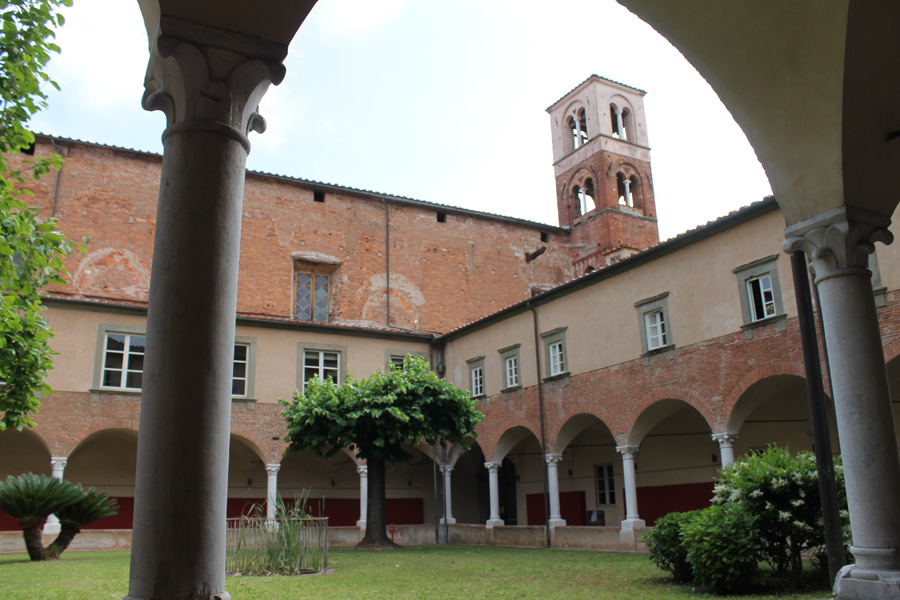
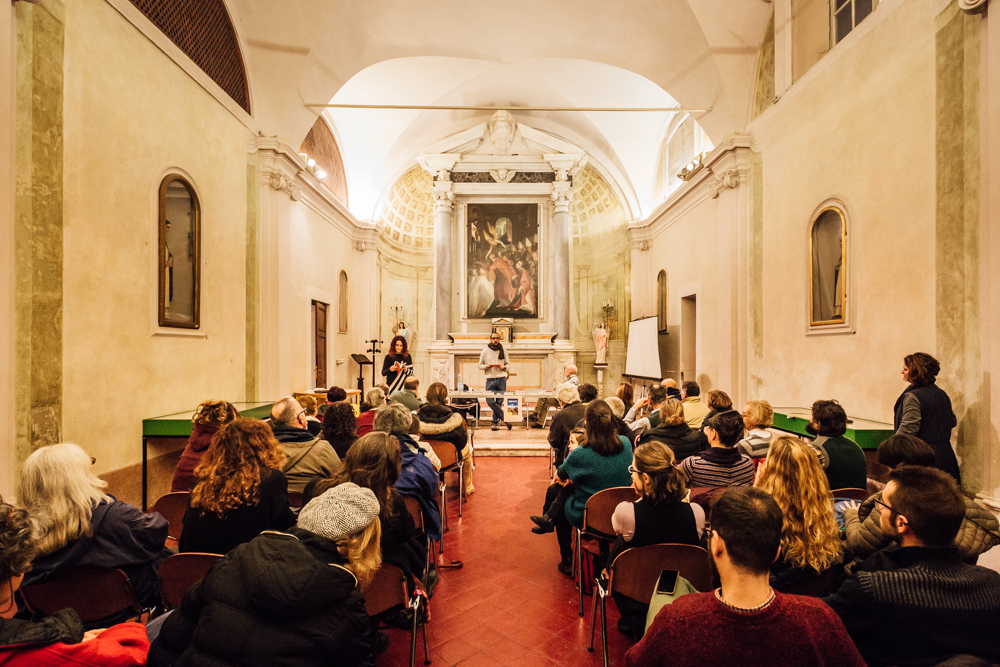
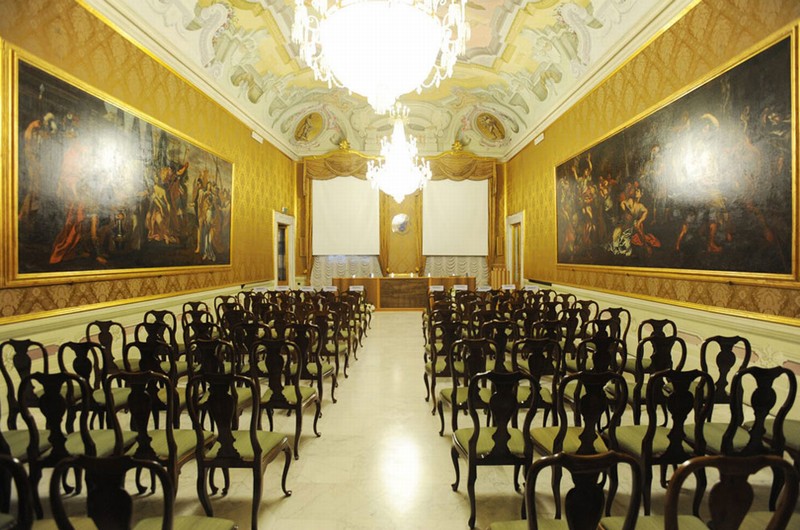
Lucca is very easy to reach both by bus as well as train from both Pisa and Florence, making it perfect for anyone getting around solely on public transportation. The train station is right outside the southern walls, with an entrance below the balcony of San Colombano that brings you right behind Lucca’s cathedral and into the heart of the small walled town. When arranging your travel by plane, book a flight to Florence (Petrola) or Pisa (Galileo Galilei) airports. The easiest way to reach Lucca is from Pisa airport that requires a 25 minutes public bus or train travel right from the airport. From Florence the travel by bus or train takes about 50 minutes. Make sure that your flight arrives earlier during the day as after 22.00 buses or trains to Lucca are no longer available. Taxis are available in Pisa airport and will cost around 50 Euro until your destination in Lucca. If your flight arrives later in the night, book a room for the night in either Florence or Pisa, and start your travel to Lucca in the morning since buses and trains are available from 5.30.
See an interactive map:
HERE
Conference participants are fully responsible for arranging the accommodation and travel to Lucca.
9th Euroacademia International Conference:
Identities and Identifications: Politicized Uses of Collective Identities
Lucca, Tuscany, Italy
Deadline for applications: 27th of April 2020
[In order to facilitate better travel arrangements for selected participants, the paper proposals are analyzed on a constant basis through regular meetings of the Selection Committee and therefore a response to the application will be delivered in maximum 5 working days after the application.]
Make sure you receive an automated notification message after filling and sending the Application Form (check SPAM folder also). If no message is received in more than 5 minutes, please send your abstract proposal also by e-mail to [email protected]
Application Form
Powered by Fast Secure Contact Form











